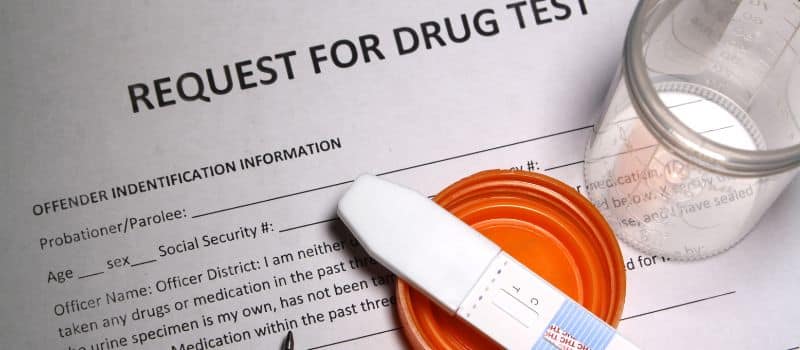Drug testing in child custody cases is a common occurrence in the state of Texas. Parents who abuse drugs or alcohol can face serious consequences, including the loss of custody rights and limited access to their children. If you share custody and have been ordered to undergo drug testing—or you’re seeking to have another parent take a drug test—it’s important to consider how drug testing in child custody cases works.
The primary concern of the Texas family courts is to ensure the safety and welfare of children involved in child custody cases. Accusations of drug and alcohol abuse are taken very seriously, and once those accusations are made it can be very difficult, if not impossible, to put that lightening back in the bottle.
If you’re abusing drugs or alcohol, you can expect to pay a price when it comes to child custody. On the other hand, if you are accusing the other parent of substance abuse solely to make them miserable and jump through hoops to get access to their kids, you could also pay a price. Making false accusations can backfire because judges have little patience for parents who waste the court’s time.
By all means, if you are concerned the other parent’s substance abuse poses a danger to your child, you should take those issues to the court right away. But parents should also keep in mind that drug testing in child custody cases can end up being very expensive, as these cases often get drawn out.
How drug and alcohol testing in child custody cases works
Drug testing can be requested during an initial child custody case, custody modification or in a case where a parent is seeking to protect a child due to a parent’s alleged substance abuse. In Texas, a request for alcohol or drug testing doesn’t need to be included in a pleading. A parent can simply request one during a hearing for temporary orders or other hearing, and the court will usually grant it. Parents shouldn’t assume they won’t be asked to take a drug test solely based on the pleading.
As far as the drug screen itself is concerned, judges usually order the party to leave the court immediately to obtain a test. The courts will have the party either go to a lab near the court or wherever the party resides for testing. So, in general, parties ordered to take a drug test should expect to undergo drug testing on the same day the court ordered drug testing in child custody cases is requested.
Parties who take prescription medications that could show up on a drug trust should also let their attorney know. The party should provide their attorney with a copy of the prescription and also tell them how long the prescription has been in effect.
Again, drug testing can be very expensive, so who pays for the tests? In most cases, the court will order the party requesting the test to pay for it if the request for a test is not supported by solid evidence that there is drug use or if there is some evidence of drug use but this is an initial request. If the party ordered to take the test fails, the other party can request by a court order that the person who failed the test reimburse them.
What type of drug test is used in custody cases?
The most common types of drug tests used for child custody cases include urinalysis, as well as nail, hair follicle and blood tests. The cost of the drug test will vary depending on the type and extent of testing involved.
For example, a nail and hair follicle drug test for child custody cases may be needed to demonstrate long-term drug abuse. Multiple tests are frequently required in these scenarios, which tends to be more costly. On the other hand, a one-time urinalysis or blood test to detect more recent substance use would likely cost less.
What consequences do parents face in failed drug test child custody cases?
It generally depends on the circumstances, duration of substance abuse, type of drugs involved and the court where the case is heard. For example, a primary parent who tests positive for a felony-level drug like heroin, methamphetamine or cocaine—even if it was the first time they used the drug—could lose custody of their kids. On the other hand, a parent who tests positive for marijuana is much less likely to lose custody (I’ll explain why in the next section).
Parents who make a one-time mistake with a felony-level drug and those who habitually abuse drugs or alcohol typically face an uphill battle to regain custody once access is taken away. In order to regain custody and access, parents with a positive drug test and child custody issues will need to prove they can be trusted to provide a safe environment for their children.
Not only will the parent be required to undergo ongoing testing for substance abuse at a lab, parents with a drinking history may also be required to use a device like Soberlink. These devices can be attached to the parent’s phone for alcohol testing in child custody cases. The parent is required to blow into the device a set number of times per day to monitor their alcohol intake.
Judges can also order parents to enter a substance abuse program in order to regain custody and access. Most parents who take steps to get clean (and stay clean) can expect to progressively get more access to their kids but it does take time. We tend to see parents in these scenarios start out with supervised access (either with a family member or representative of family services present), then work their way up to overnight visits and eventually back to an expanded standard or primary custody arrangement.
How new laws on marijuana affect child custody in Texas
First and foremost, possession and use of marijuana is still illegal in Texas. That means if you use or abuse marijuana, the Texas family courts could decide to restrict access to your children at their discretion. Honestly, it all depends on the individual judge. Some judges have little to no tolerance for marijuana use, while others view marijuana much like they do alcohol (recreational use may be OK but being high all the time definitely is not).
A new law passed in Texas in 2021—along with the trend toward legalizing marijuana in other states—likely played a role in how the family courts now react to marijuana drug testing in child custody cases.
Per Texas Family Code § 262.116(a)(7), the Department of Family and Protective Services is no longer allowed to take possession of a child based solely on the fact that a parent has tested positive for marijuana. However, they can remove the child if “the department has evidence that the parent’s use of marijuana has caused significant impairment to the child’s physical or mental health or emotional development.”
While the new law demonstrates more leniency toward marijuana use, parents who use marijuana shouldn’t assume custody of their kids won’t be impacted if they test positive. Again, it all depends on which judge’s court they end up in and whether the other parent can present evidence to prove their child’s physical or emotional welfare is at risk.
Be sure to hire an attorney who knows how drug testing in child custody cases works
Whether you’re reading this blog because you want to know how to prove drug use in custody case or you want to regain custody of your kids following a positive drug test, it’s critical to take the drug testing process seriously. You should also have a frank conversation with your child custody lawyer regarding their experience handling drug testing cases.
Many attorneys don’t understand what tests to order (and when) or on what grounds they can challenge drug test results. The truth is there are very few certified drug experts in Texas. In fact, many of the people who run the drug testing labs are not certified. This leaves the door open for a Daubert Standard challenge to challenge the qualifications of the drug expert and the accuracy of evidence they have provided to the court.
We can answer your questions about child custody in Texas
If you live in North Texas and want to find out how drug testing in child custody cases works, what impact drug use has on shared, primary or sole custody in Texas and when do they drug test child support hearings, contact us.
To schedule a confidential case review with a child custody lawyer at the Sisemore Law Firm, you can call our office at (817) 336-4444 or connect with us online.




